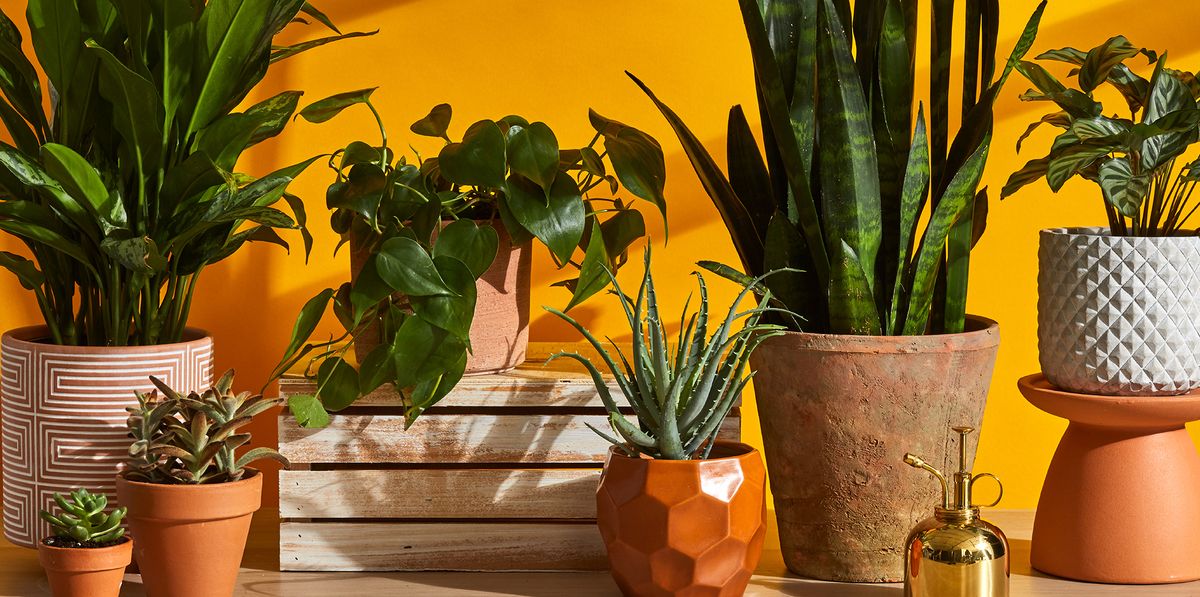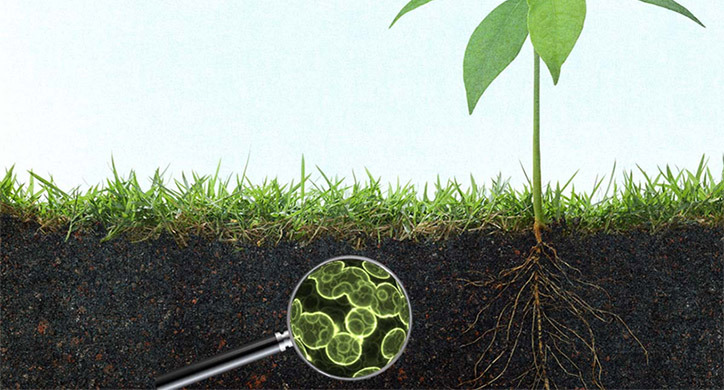Categories
Categories
Brands
Brands
Blog
Indoor Plants: Comprehensive Care Guide for a Lush, Green Oasis
Posted by on

In our fast-paced lives, indoor plants have emerged as not just decorations but as our connection to nature within our homes. They not only enhance the aesthetics of indoor spaces but also purify the air and contribute to a healthier and more vibrant atmosphere. In this comprehensive guide, we'll explore the world of indoor plants, from care guides for various houseplants to the benefits of air-purifying plants, and offer tips on creating your own indoor green paradise.
Selecting the Right Indoor Plants
Before diving into care tips, it's essential to choose the right plants for your indoor space. Consider factors such as lighting conditions, available space, and your level of gardening experience.
Light Requirements
Different plants have varying light needs:
- Low Light Plants: Options like Snake Plant (Sansevieria) and Peace Lily (Spathiphyllum) thrive in low light conditions, making them ideal for rooms with minimal sunlight.
- Medium Light Plants: Spider Plant (Chlorophytum comosum) and Pothos (Epipremnum aureum) do well in moderate light, receiving indirect sunlight.
- High Light Plants: Ficus elastica (Rubber Plant) and Bird of Paradise (Strelitzia) require bright, indirect sunlight or some direct sunlight.
Space Considerations
Determine the available space for your indoor garden:
- Hanging Plants: Consider hanging plants like Boston Ferns or Spider Plants to maximize vertical space.
- Shelf and Ledge Plants: Compact options such as Succulents and Cacti can be displayed on shelves or window ledges.
- Floor Plants: Larger plants like Peace Lilies and Fiddle Leaf Figs can serve as focal points in spacious rooms.
Your Gardening Skill Level
Choose plants that match your level of expertise:
- Beginner-Friendly: Snake Plant, ZZ Plant, and Aloe Vera are resilient and perfect for beginners.
- Intermediate: As you gain confidence, try growing Peace Lilies, Spider Plants, and Pothos.
- Advanced: If you're an experienced gardener, challenge yourself with Ficus trees or Calathea varieties that require more attention.
Indoor Plant Care Basics
Once you've selected your indoor plants, it's time to provide them with the care they need to thrive. The key elements of indoor plant care include:
Watering
Proper watering is crucial:
- Frequency: Water when the top inch of soil feels dry for most plants. Succulents and cacti prefer drier conditions.
- Water Quality: Use room temperature, filtered water to avoid shocking your plants with cold or chlorinated water.
- Drainage: Ensure that your pots have drainage holes to prevent waterlogged soil, which can lead to root rot.
Soil and Potting
Select the right soil mix and pot size:
- Potting Mix: Use a well-draining potting mix specific to your plant type, such as cactus mix for succulents.
- Pot Size: Choose a pot that allows for 1-2 inches of space around the roots. Repot as your plant grows.
Humidity and Temperature
Maintain a suitable indoor environment:
- Humidity: Some plants, like ferns and orchids, benefit from higher humidity levels. You can use a humidity tray or a humidifier.
- Temperature: Most indoor plants prefer temperatures between 60°F (15°C) and 75°F (24°C).
Pruning and Maintenance
Regular maintenance keeps your plants healthy:
- Pruning: Trim dead or yellowing leaves, and pinch back leggy growth to encourage bushier growth.
- Dusting: Wipe down leaves to remove dust and allow better light absorption.
- Fertilizing: Feed your plants with a balanced, water-soluble fertilizer during the growing season (spring and summer).
Air-Purifying Plants
Apart from their beauty, many indoor plants also have the added benefit of purifying the air. These plants absorb harmful pollutants, making your indoor environment healthier.
NASA's Clean Air Study
NASA's research has identified several plants with air-purifying qualities, including:
- Spider Plant: Effective in removing formaldehyde and xylene.
- Peace Lily: Excellent at removing ammonia, benzene, and formaldehyde.
- Aloe Vera: Helps eliminate formaldehyde and benzene.
Benefits of Air-Purifying Plants
- Improved Air Quality: These plants can remove toxins from the air, leading to better respiratory health.
- Stress Reduction: Indoor plants have been shown to reduce stress and improve mood.
- Enhanced Productivity: Having plants in your workspace can boost productivity and creativity.
Creating Your Indoor Green Space
Now that you have the knowledge to care for your indoor plants and understand their air-purifying benefits, it's time to create your indoor oasis.
Plant Arrangement
- Grouping: Cluster plants with similar care requirements together to simplify maintenance.
- Plant Stands: Use shelves or stands to create height and add visual interest.
Decorative Pots and Planters
Select pots that complement your décor:
- Terracotta: A classic choice for a natural look.
- Ceramic: Offers a wide variety of colors and styles.
- Hanging Baskets: Ideal for trailing plants like pothos.
Accessories
- Plant Hangers: Hang plants from the ceiling or wall to save floor space.
- Plant Art: Consider plant-themed artwork or botanical prints for added ambiance.
- Plant Care Supplies: Keep essential tools and supplies nearby for convenience.
Indoor plants have the power to transform your living space into a green sanctuary. By carefully selecting the right plants, providing proper care, and understanding their air-purifying benefits, you can create a lush and healthy indoor garden that enhances both your well-being and your home's aesthetics. So, roll up your sleeves, get your hands dirty, and embark on the rewarding journey of indoor gardening. Your indoor paradise awaits!
Why Tomatoes Split and How To Prevent It
Tomatoes split or crack for several reasons, and understanding these factors can help you prevent this issue:Irregular Watering: One of the most common causes of tomato splitting is irregular watering. When the soil dries out and then receives a sudden influx of water, the fruit may absorb water faster than it can expand, causing the [...]
The Green Revolution: Embracing Organic Gardening for Eco-Friendly Cultivation
Organic gardening is more than just a trend; it's a sustainable way of cultivating plants while respecting the environment and promoting healthy, chemical-free produce. In this blog post, we'll delve into the world of organic gardening techniques, composting, and natural pest control methods. By the end, you'll be armed with the knowledge to embark on [...]
Rooting Mediums for Clones & Cuttings
Choosing the appropriate medium for planting a clone is essential to ensure its healthy root development and growth. Here are some of the best mediums to consider for starting plant clones:1. Rockwool Cubes: Pros: Sterile, porous, and retain water well.Cons: They can sometimes retain too much water, leading to oxygen deprivation for roots.2. Coconut Coir: Pros: Sustainable, [...]
Cloning Cannabis - Guide
Cloning a cannabis plant involves creating a genetic copy of the plant, ensuring the clone inherits the exact characteristics, potency, and yield as its mother plant. Here’s a step-by-step, highly detailed guide to cloning a cannabis plant:1. Gather Supplies:Before starting, gather all the necessary supplies:A healthy, vigorous mother plantA clean, sharp pair of scissors or [...]

The Benefits of Microbial and Bioactive Soil Amendments
Introducing beneficial microbes and organic or inorganic compounds can work wonders in improving overall soil health. Microbes enhance the soil structure, promote root and plant growth, improve crop health, increase water dynamics which can reduce salt and drought stress, prevent the loss of nutrients, increase the uptake of nutrients and water, and protect against disease and pests. Bacteria [...]
Mycorrhizae Crash Course
Most people and even some growers don't know what mycorrhizal fungi are. It is a fungus that forms a mutualistic and helpful relationship with plant roots. Mycorrhizal fungal filaments in the soil function as extensions of plant root systems and are more effective in nutrient and water absorption and delivery than the roots themselves. In essence, they bond with [...]
 Loading... Please wait...
Loading... Please wait... 